COLLECTABLE STORIES: CRUST
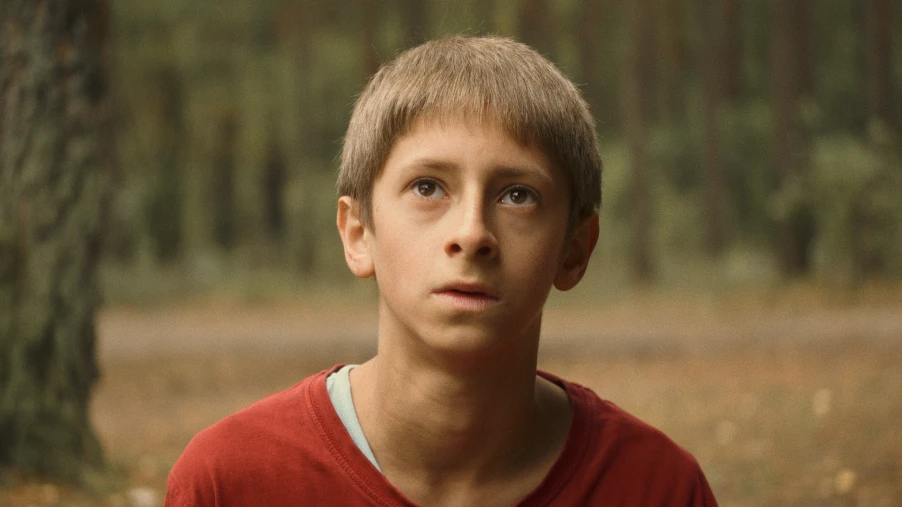
CRUST
Short Talk with Jens Kevin Georg (director) and Lasse Frobese (cinematographer)
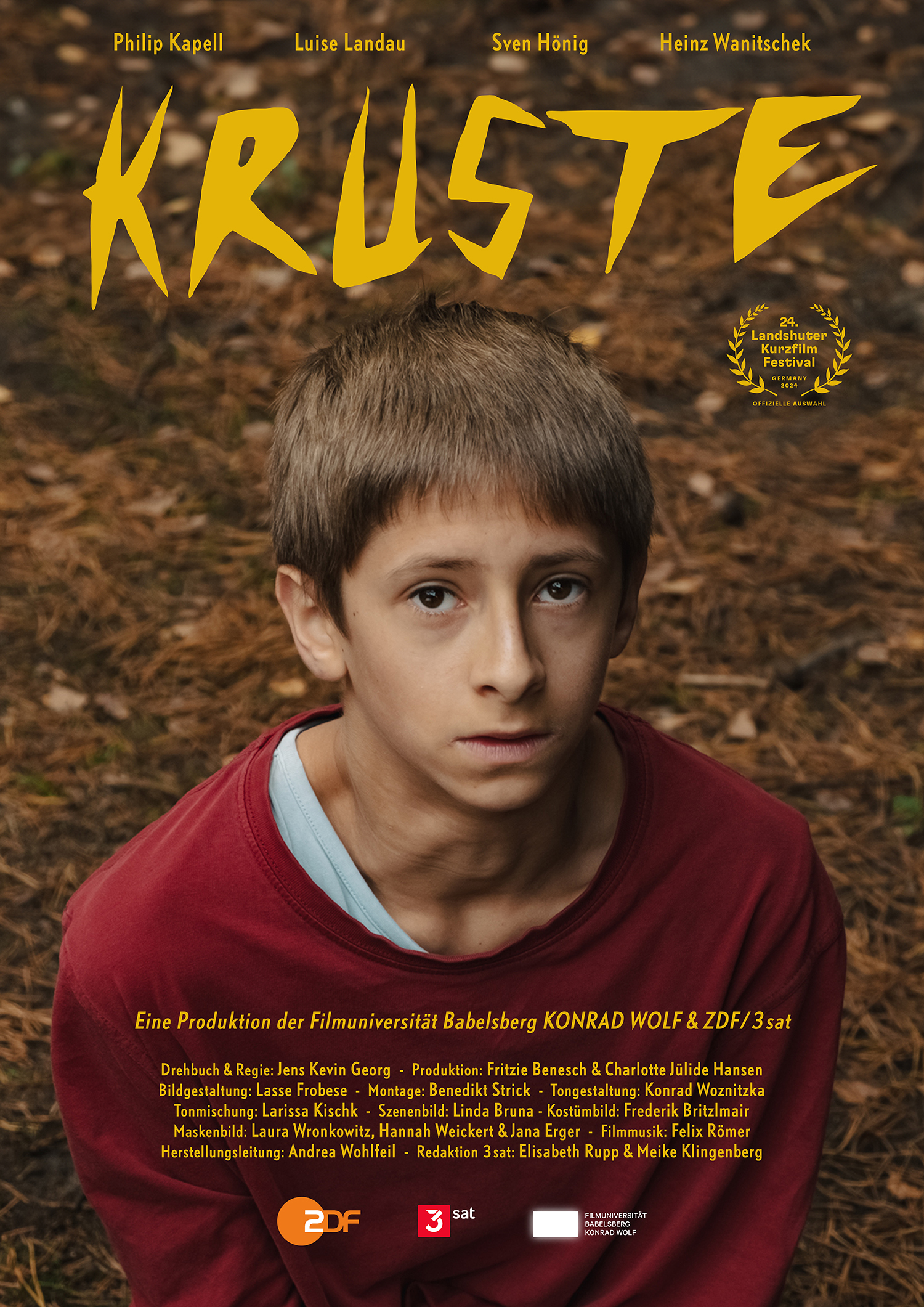
Germany / 2023 / 25‘59‘‘
BEST STUDENT FICTION FILM Category
21st IN THE PALACE International Short Film Festival 2024
Synopsis: In this family you can only become a true member by getting your first scar. But 12-year-old Fabi is still woundless. On grandpa's farm, he has to finally prove himself as one of them. Fabi's father knows that the boy now has to go through with it - as they all had to. And Fabi really wants to want to belong. But in the end, how much will be left of him (and his skin)?
Biography:
1994: After being born, had to watch how the German Mannschaft was kicked out of the Football World Cup
2009: end of his goalkeeper career: lost the starting job because of his bad eyesight, tiny hands and a broken heart
2018-2022: lost 13 kilos during his directing-studies at Filmuniversity Babelsberg and gained 15 while shooting his graduation film
2022-now: master’s program at Academy of Media Arts Cologne. Weight still unstable.

Jens Kevin Georg, director
Neda Valcheva (author): Could you please tell me how you came up with the idea of the plot- the physical wounds, it is not a metaphor, since the characters are really getting hurt in the film.
Jens Kevin Georg (director): I think it started with me reversing how I got my first scar and how this was actually a moment in which I found a change in myself as a growing boy. I used to be a very shy kid and used to cry a lot. I got my first scar when I was ice-skating and one of my best friends decided that it is a good idea to kick me in the chin with the blade of the skates. I sort of took the kick “as a man” and I did not cry and I was actually proud of myself for getting this wound. This is basically the thing about this memory and reflecting on that was how the whole process on “Crust” started.
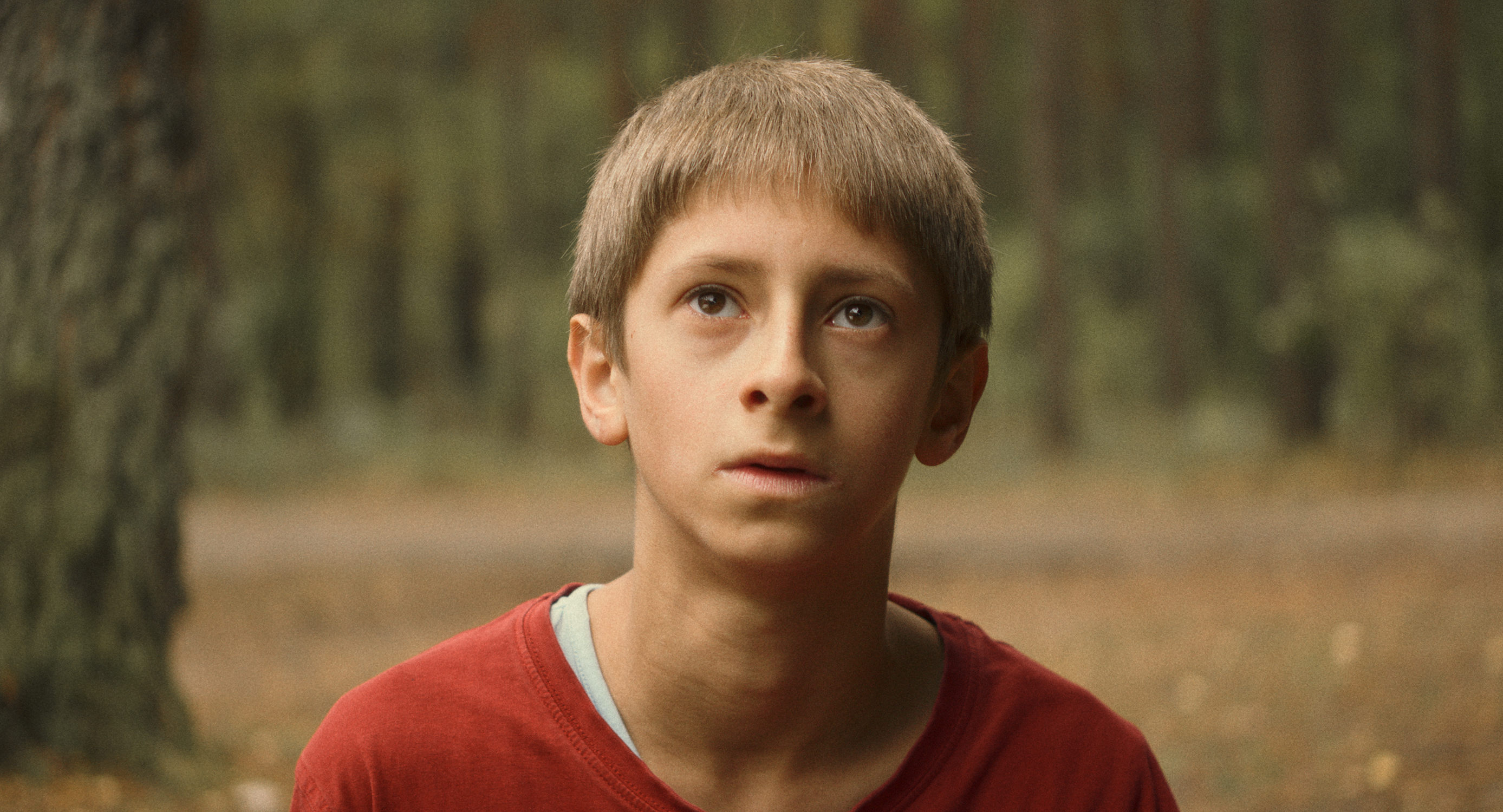
Neda Valcheva: So, the film has its truth inside.
Jens Kevin Georg: Hopefully, yes. This is something that I always try to implement in my work: truth.
Neda Valcheva: The aesthetic within the film was very beautiful. Did you use a certain approach with it?
Jens Kevin Georg: Lasse and I started working early on the script, so there were also always very visual approaches towards the aesthetic. He gave me a lot of feedback and many times he told me that, for example, some line is unnecessary, or another thing can be done in one shot. I think what we were looking for was this light summer feeling.
Lasse Frobese (cinematographer): Everything is dry, it is summer, but it is not pleasant. This was the aesthetics we were looking for.
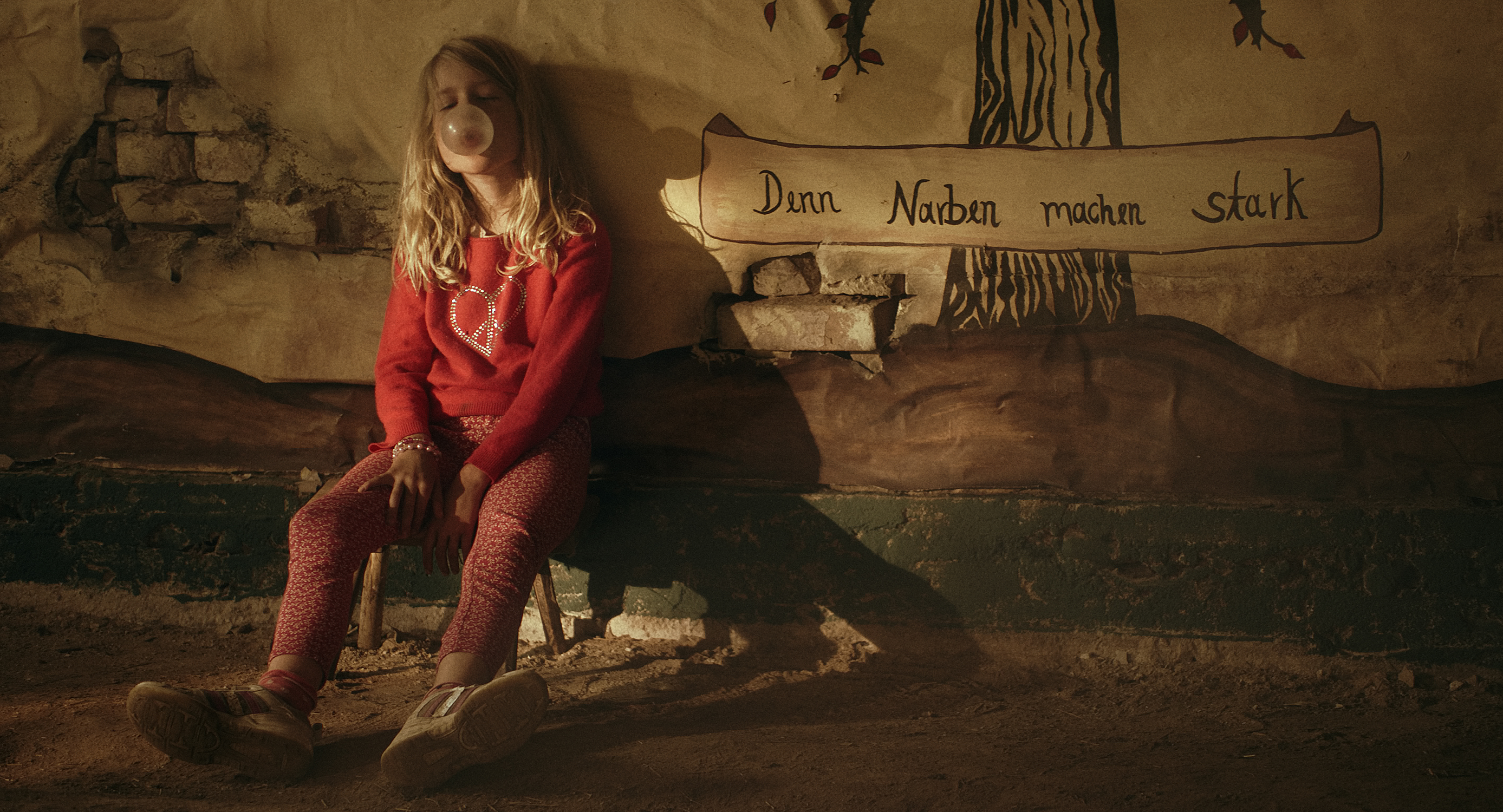
Jens Kevin Georg: And also we were trying to create a lot of dynamic. What was most important for us was to be truthful to Fabia’s perspective: a child perspective. The quiet moments we wanted to explore, as he explores them, as well as the chaos that comes with this family. The dynamic in the film was very important for us.
Neda Valcheva: The ending of Crust felt very impactful, can you tell me more about it?
Jens Kevin Georg: For me it was always about that I did not want him to just leave his family, I wanted him to remain part of it. But I was looking for a way to show a certain reflection on his family and that he may have a different point of view about this whole thing. We showed his softness in the most visual way possible.
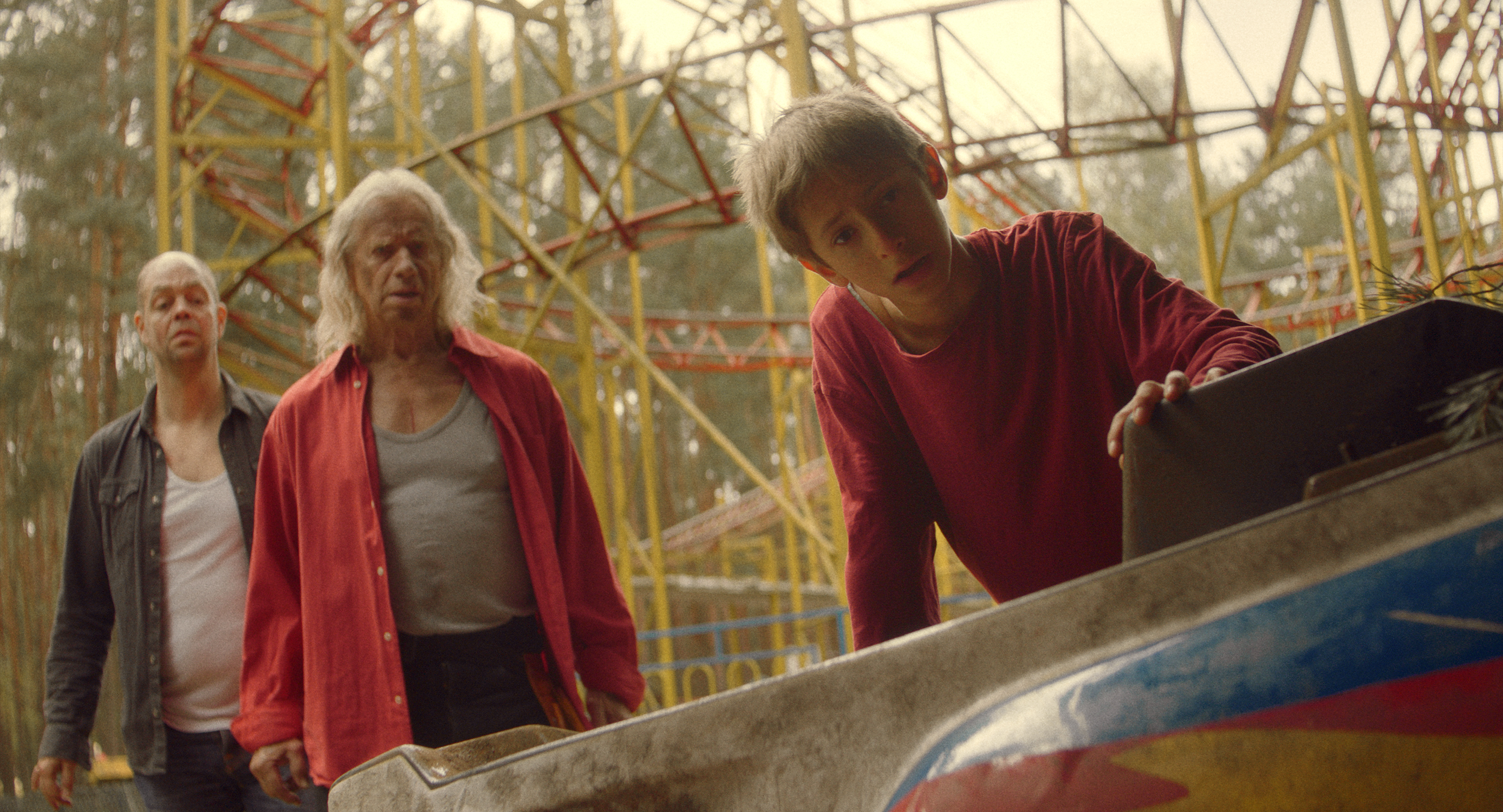
Author's view (Petar Penev):
Blending the lines between thriller and dark comedy, Crust presents us with a distorted version of reality where violence is equated with love, and the scar becomes its manifestation.
Despite the joyous mask it wears, the world of our characters is a Kafkaesque nightmare for the protagonist. In this world, empathy is treated like a curse — a concept that feels all too relevant in today’s political and social climate. The mystical and ritualistic way in which growing up is portrayed within the family unit is grotesque and primal, with the root cause being the fragile self-worth of those involved. Unfortunately, as is often the case, even in playground scenarios, those who are bullied are forced to conform to the ways of the pack.
As abuse proves to be ultimately unfulfilling, its open rejection may be the only antidote to the harm already done. It delivers a warm, comforting message to the more fragile among us.






